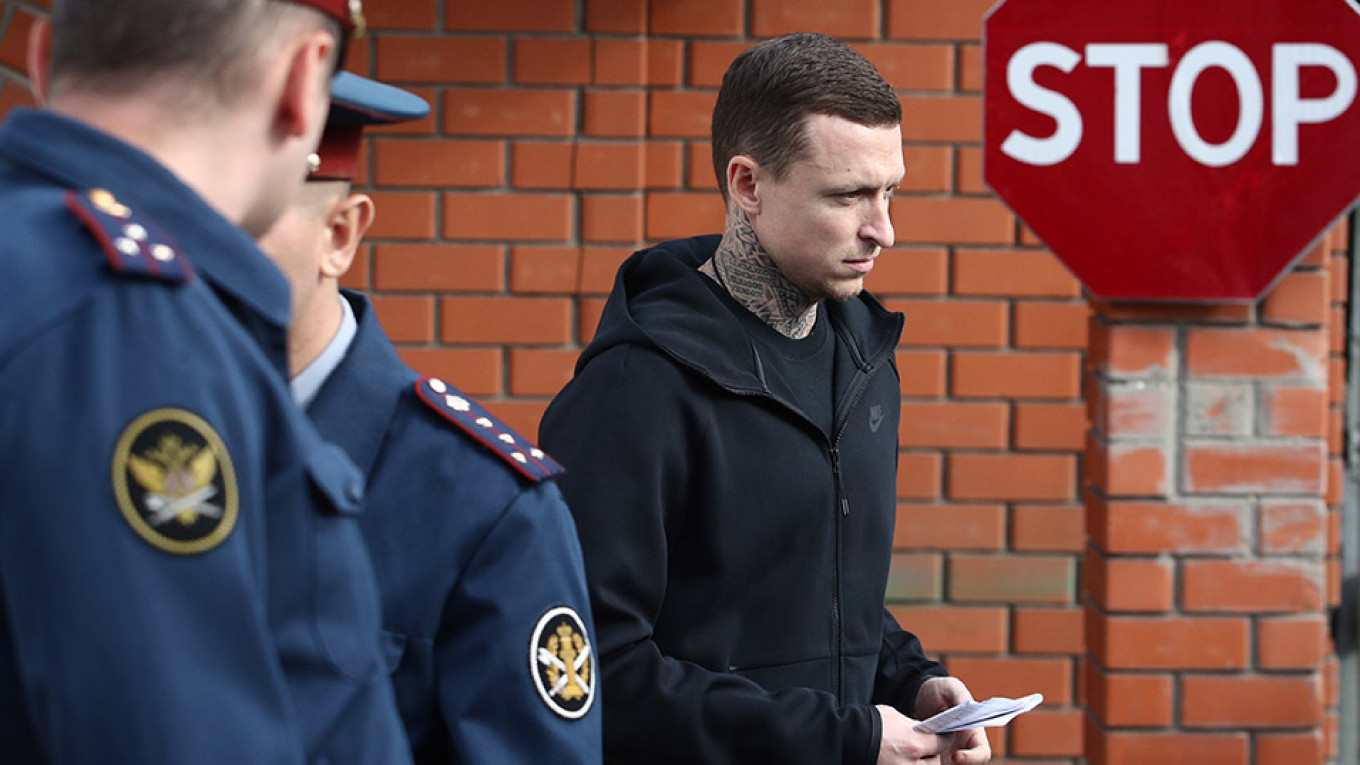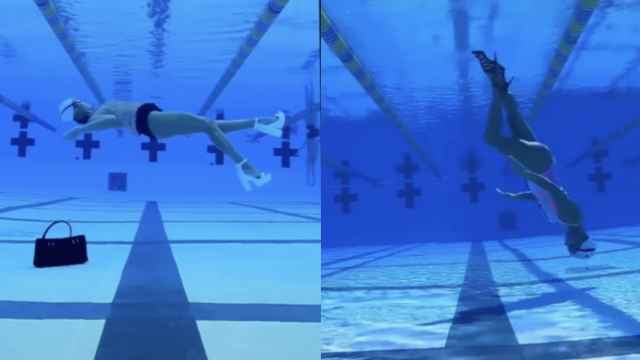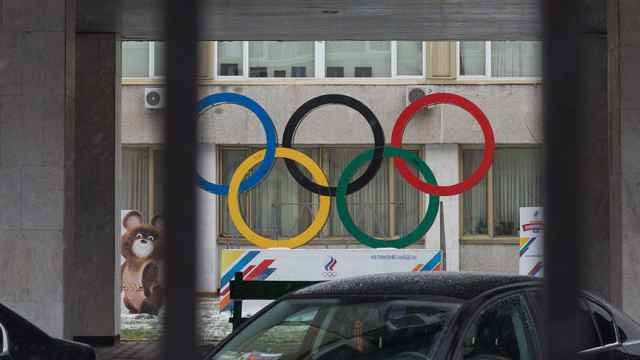Two Russian football stars have been released after serving six months in jail over their involvement in a pair of violent attacks that sparked public outcry last year.
Alexander Kokorin and Pavel Mamayev, who both played in Russia’s top league and used to play for their country, apologized after being caught on surveillance last year taking part in two violent assaults in Moscow. Earlier this month, a Moscow court ordered the two footballers’ release on parole.
Kokorin and Mamayev were released from a prison colony in the Belgorod region Tuesday, the state-run TASS news agency reported.
In May, Kokorin was sentenced to 18 months in jail, while Mamayev was ordered to serve 17 months after months of hearings that were widely covered by Russian state media.
Last fall, Sports Minister Pavel Kolobkov said that the incidents had “cast a shadow on all of Russian football.”
Some Kremlin critics had said their harsh treatment and public shaming after an outcry was used as a distraction from problems in the country such as an unpopular measure to raise the pension age.
A Message from The Moscow Times:
Dear readers,
We are facing unprecedented challenges. Russia's Prosecutor General's Office has designated The Moscow Times as an "undesirable" organization, criminalizing our work and putting our staff at risk of prosecution. This follows our earlier unjust labeling as a "foreign agent."
These actions are direct attempts to silence independent journalism in Russia. The authorities claim our work "discredits the decisions of the Russian leadership." We see things differently: we strive to provide accurate, unbiased reporting on Russia.
We, the journalists of The Moscow Times, refuse to be silenced. But to continue our work, we need your help.
Your support, no matter how small, makes a world of difference. If you can, please support us monthly starting from just $2. It's quick to set up, and every contribution makes a significant impact.
By supporting The Moscow Times, you're defending open, independent journalism in the face of repression. Thank you for standing with us.
Remind me later.






